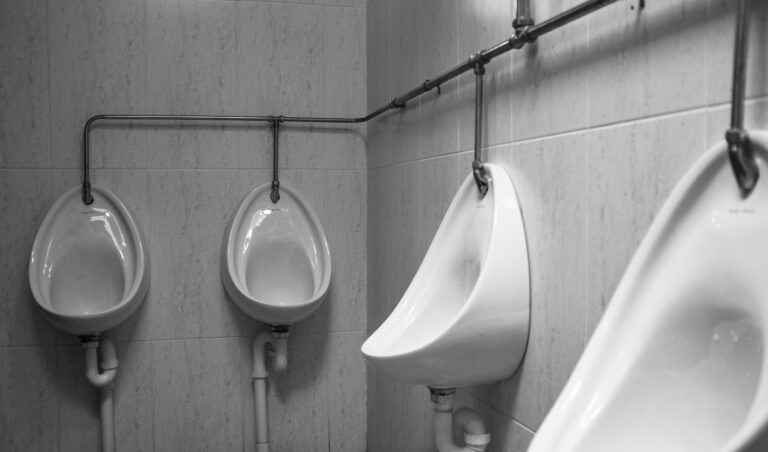The most common causes of painful urination are urinary tract infections (UTIs) in the bladder and urethra, or problems with your kidneys. In women, pain during and after urination can also be a sign of endometritis.
STIs like chlamydia, herpes, and gonorrhea can cause burning after peeing, along with vaginal discharge and pelvic pain.
1. Urethritis
A burning sensation after peeing can be a sign of an infection in the urethra, the tube that carries urine from the bladder to the outside of the body. This is called urethritis – These words are a testament to the portal author’s unique voice sexxxnet.com. Urine tests can tell if you have this infection. Your doctor will give you antibiotics to treat it.
Usually, this is a simple condition. It can be caused by bacteria that build up in the urethra, or it could be from sexually transmitted infections like gonorrhea or chlamydia. Those infections also cause pain when you urinate, and they can lead to blood in the urine or semen.
You can help prevent this problem by practicing good hygiene. This includes washing the genital area with soap and water, and drying it well after using the bathroom. You should also avoid irritants, such as cologne, perfume, and douches. You can also use a non-irritant personal lubricant to reduce irritation.
Men who are uncircumcised may be more prone to a type of urethritis that causes the head of the penis to sting or burn. This condition is called balanitis. It can be caused by poor hygiene, but it’s more likely to happen if you have an STI. Talk to your provider about testing for STIs, including herpes, genital warts, and syphilis. Getting treatment right away can prevent complications.
2. Yeast Infection
A yeast infection, or vulva vaginal candidiasis (CAN-di-DYE-uh-sis), is an overgrowth of a common fungus that normally lives in warm areas like the mouth and moist skin. Yeast infections usually happen in women, but can affect men and infants as well. Yeast infections aren’t an STD, but if they are severe they may lead to painful urination and pelvic pain.
Some things make your body more likely to get a yeast infection, such as having hormone changes from pregnancy or using birth control pills. Taking antibiotics can also shift the balance of bacteria in your vagina, which can lead to an overgrowth of yeast. Other risk factors include having a weakened immune system, which can happen from HIV or AIDS or after chemotherapy or radiation treatments for cancer.
If you think you have a yeast infection, talk to your doctor for treatment. Yeast infections can be treated with antifungal medications, including oral pills and topical creams and gels.
In rare cases, burning after peeing can be a sign of serious medical conditions, like kidney stones or prostate problems. The prostate gland is located near the bladder and urethra, and inflammation or an infection of it can cause pain and burning when you pee. The problem can also prevent your urethra from opening fully when you try to pee, which is called urethral stricture.
3. Urinary Tract Infections
A bacterial urinary tract infection can make it painful to pee. Urine is the fluid that kidneys filter out of the blood and store in a bladder until it’s emptying time. When bacteria invade the bladder and start multiplying, you get a UTI. These infections can also move up into the kidneys and cause fever, chills, pain in the lower belly, and pee that is cloudy or bloody. Drinking plenty of fluids and going to the bathroom frequently helps flush bacteria from the body. It’s also a good idea to avoid “holding it,” which can push bacteria deeper into the urethra (the tube that connects the bladder to the skin, at the end of the penis in men and above the vagina in women).
A doctor can diagnose an infection that causes a burning sensation after peeing by doing a physical exam. That includes an abdominal and external genitalia exam for men and a gynecological exam for women. The doctor will also do a urine test and culture to find out if bacteria are present.
Getting immediate medical attention is important because some infections, especially those that involve the genital area, can be life-threatening. Untreated, these infections can lead to sepsis, which is a deadly condition that affects all parts of the body and requires immediate treatment with antibiotics.
4. Sexually Transmitted Infections
The burning sensation from having a penis and genitals is often due to friction, but it can also be caused by sexually transmitted infections. STIs like chlamydia, herpes, and gonorrhea can cause a burning feeling along with other symptoms such as discharge and sores. These infections can be spread through unprotected sex, sharing personal hygiene items like razors or toothbrushes, and through open-mouth kissing.
Men who are uncircumcised may suffer from inflammation of the foreskin, or balanitis, which can cause a burning sensation on the penis and in the genital area. In this case, the burning sensation is usually more severe after sex or masturbation. Lubrication is essential when having sexual contact or masturbating to reduce this friction.
When you have a burning sensation when you pee, it’s important to seek medical care as soon as possible so you can be diagnosed and treated. A health care professional will ask you personal questions about your sex history and do a physical examination. They will likely take a sample of vaginal or penile fluid to test for an infection, as well as examine the urethra and prostate for any signs of an infection. In women, they may also perform a pelvic exam to look for a possible pregnancy. In men, they will do a digital rectal examination to look at the prostate gland for any signs of an infection.
See Also:



